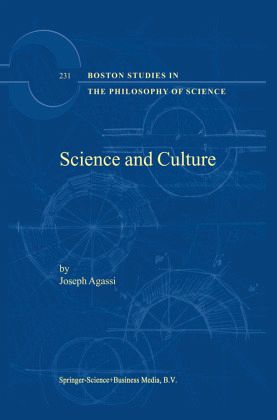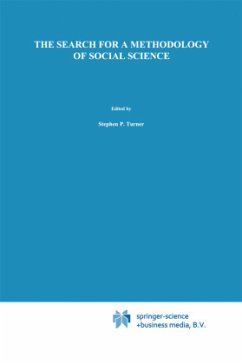
Science and Culture
Versandkostenfrei!
Versandfertig in 6-10 Tagen
113,99 €
inkl. MwSt.
Weitere Ausgaben:

PAYBACK Punkte
57 °P sammeln!
In Science and Culture, Joseph Agassi addresses scientism and relativism, two false philosophies that divorce science from culture in general and from tradition in particular. According to Agassi, science is an integral part of culture, and both scientism and relativism ignore the cultural value of science. This work helps break the isolation of science from the rest of culture by promoting popular science and reasonable history of science. Agassi provides examples of the value of science to culture at large, discussions of items of the general culture and their interactions with science, and ...
In Science and Culture, Joseph Agassi addresses scientism and relativism, two false philosophies that divorce science from culture in general and from tradition in particular. According to Agassi, science is an integral part of culture, and both scientism and relativism ignore the cultural value of science. This work helps break the isolation of science from the rest of culture by promoting popular science and reasonable history of science. Agassi provides examples of the value of science to culture at large, discussions of items of the general culture and their interactions with science, and practical strategies and tools. He offers a wide variety of case studies to exemplify these. In this book Agassi puts significant topics such as autonomy, tolerance, reason, philosophy and responsibility on the agenda of democratic philosophy today.














